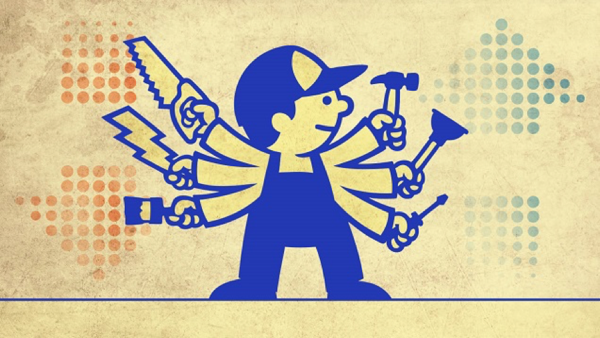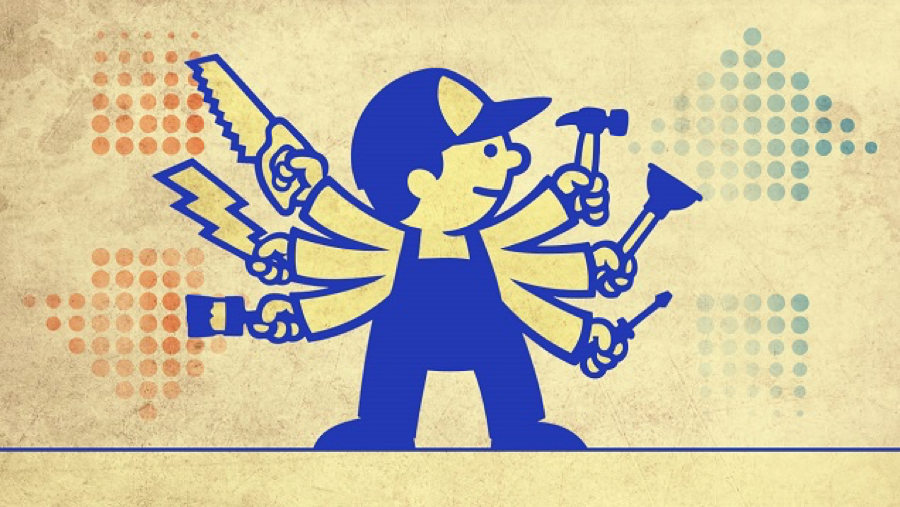[custom_frame_center shadow=”on”] [/custom_frame_center]
[/custom_frame_center]
At the age of seven I started playing piano. Like a lot of young students, I had a mom who pushed me to practice. One hour per day, on some days, seemed like an eternity, and while I wasn’t a prodigy, I did well. In middle school, I begged the band director to teach me another instrument so I could join the band. I knew how to read music and how to count, so he thought percussion might be a good inroad. I eventually joined every music group in middle and high school, either singing or playing either piano or a variety of percussion instruments. I didn’t delve deeply into music theory, the history of composers or the structure of a piano. When I was away from school, I wasn’t slaving away at the piano. I played because I could and I always enjoyed a challenge. I was, and continue to be, what I call a “workhorse” pianist. Or maybe you could say a “Jack of all trades” musician.
By definition, the phrase “Jack of all trades, master of none” refers to a person with many skills who spends so much time learning each new skill that they cannot become an expert in any particular one. The website neatorama.com says the phrase has been around for centuries. “The use of the word “Jack” was only included because it was still being used as a generic term for ‘man’ at the time. It was not originally a negative expression, but at some point, people started adding on the phrase “master of none,” which made for a whole new meaning.” If you throw in the phrase, “You don’t know jack,” you start to think that name is getting a bad rap. The site goes on to say: “Because Jack was so often used to refer to social underlings, it was eventually used to refer to useless objects…The phrase “You don’t know jack” (with or without the expletive) has been used for decades to say someone knows very little.”
Despite an inauspicious origin, there can be significant benefits to being a “Jack of all trades.” An advantage to this is you are never bored. There can be significant excitement in learning and trying new things. “Jacks” are pretty adaptable, too. You become useful in a lot of situations, including in the workplace. You build a broad base of knowledge and confidence, and others see you as a good point of reference because of your experience. Some leadership roles are held by very successful Jacks, who carry a lot of weight because of their openness, innovative spirit and experience.
In Patrick Allan’s article, “The Surprising Benefits (and Pitfalls) of Being a “Jack of All Trades,” he says setting goals is key to being a successful Jack. “If you’re not good at focusing on only a few things at a time, you’ll get overwhelmed with everything you want to do. In that scenario the worst thing of all can happen: you don’t learn how to do anything at all. You’re not progressing toward a specialization, but now you’re also not learning to be competent at anything else.”
But let’s get real. In some circles, being a Jack would also be called “having ADHD.”
Some Jacks can find themselves falling into another phrase – “Always the bridesmaid, never the bride.” You never become (or are seen as) a specialist. In a lot of professions, that can translate into fewer promotions, less prestige and less clout. In specialized fields, utility players have a much harder time climbing the ladder or establishing respect among peers. While leadership roles in some fields can be held by Jacks, many fields require a President or CEO with precise knowledge and expertise. In the sporting world, champions are made from those who work the hardest at their skills. The best become the best because that’s all they focus on. Passion, drive and one goal.
James Liu, founder and developer of BoxCat Games (an independent video game development company), says the idea of being a Jack versus being a Master is not mutually exclusive and in his opinion, you can’t even be a Jack of all trades without being a master of at least one.
“Mastery of one trade can be converted into a catalyst for learning other fields. You have something to pull from, complex ideas you can pattern match, and metaphoric analogies that can complete a picture. The more you learn, the faster you learn.”
This conflicting idea of utilizing scalable learning to become a Master first and a Jack second seems a bit diluted. Almost like creating an oil-on-canvas masterpiece and then duplicating it with prints. But then again, maybe I just don’t know Jack.
————————————–
By: Melissa Hardin Baysinger



